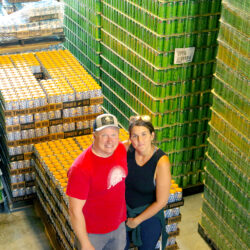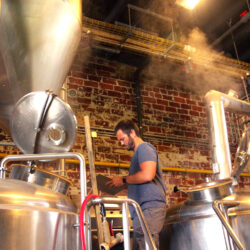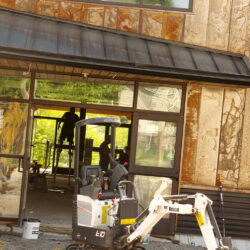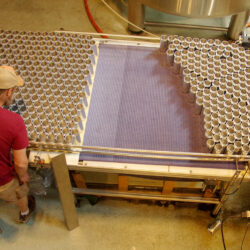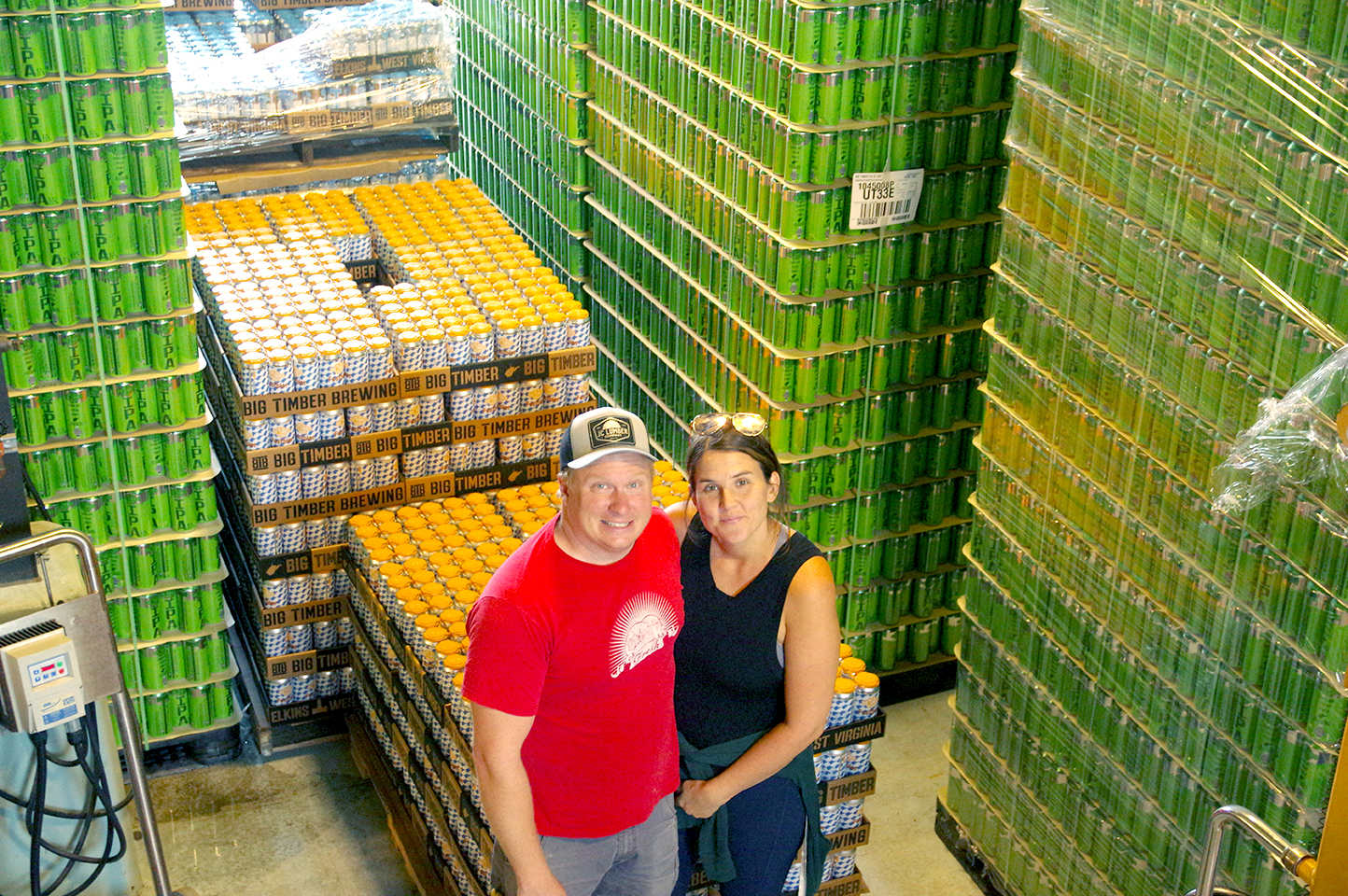
Big Timber Shows the Big Impact of Small Businesses
Matt and Ashley Kwasniewski were shopping around for startup capital for their craft brewery idea in 2012, just as we opened the doors of Lenders.
None of the commercial banks they spoke to were interested in the pair of 22 year-olds with no credit history, and the amount they were looking for was more than the brand new Lender’s funds could provide. So, “Woodlands introduced us to NCIF,” Matt explains.
NCIF, now rebranded as Partner Community Capital or PCAP, is a regional CDFI that serves West Virginia. Matt and Ashley were able to obtain loans from both Lenders and PCAP for their downpayment and borrow the remainder from Grant County Bank to purchase their first building and get Big Timber Brewing Company up and running.
When the brewery opened in 2013, it was not a major local employer. “We had to do everything ourselves, on a shoestring budget,“ owner Ashley Kwasniewski explained, “ I would work six days a week behind the bar and Matt would come in and do a 12-hour brew cycle and then come back at two in the morning to filter beer.”
But now, nine years later, Big Timber distributes products to retailers large and small throughout the state. They have 16 full-time employees including brewing staff, tap room employees, and a construction crew. They will add at least another 6-8 staff when the new tap room and kitchen open.
Despite being the largest city in Lenders’ service area, at just under 7,000 residents Elkins is considered rural by federal standards. According to the Brookings Institute, small businesses account for as much as 65% of the jobs in rural areas, so we see lending to one or two-person, Mom & Pop type ventures, as absolutely critical to supporting the local job economy.
In a case like Big Timber, our initial loan didn’t support any new hires, but now the business is a major economic force in the region, bringing in revenue from across the state that will soon provide 24 jobs right in Elkins.
According to Ashley, Big Timber has, “Been growing at about 10 – 15% per year, which is about what we can handle.”
Sustainable growth must consider sales, production, and staffing capacities because, as Matt explains, “Elkins is limited in terms of human resources. We have to train new staff from the ground up because there’s not a source for experienced brewing or food production workers we can pull from.”
As the brewery has expanded into their new solar-powered facility and the riverside taproom which, Ashley says, “is everything we ever dreamed of,” nears completion their first location is being repurposed into a butcher shop and farm store for Matt’s brother’s business, The Charm Farm Market and Butcher. Expect job postings before too long from that venture as well.

Green Building Initiative: Conditioned Crawl Spaces
Since our inception in the mid-1990s Woodlands has been pushing the envelope and including green building practices on every project. Wrapped in the final package of a finished house, ...
Read More
Community Banks Provide Key Investments to Push Tygart Hotel Project Forward
Historic Tax Credit investments close financing gaps on Elkins’ big hotel project Tygart Hotel partners Pendleton Community Bank, Davis Trust Company, and Freedom Bank gathered on Friday, April 29th ...
Read More
2022 Lenders Annual Report & Audit
Click here or image above to view/download full annual report (.pdf)
Read More